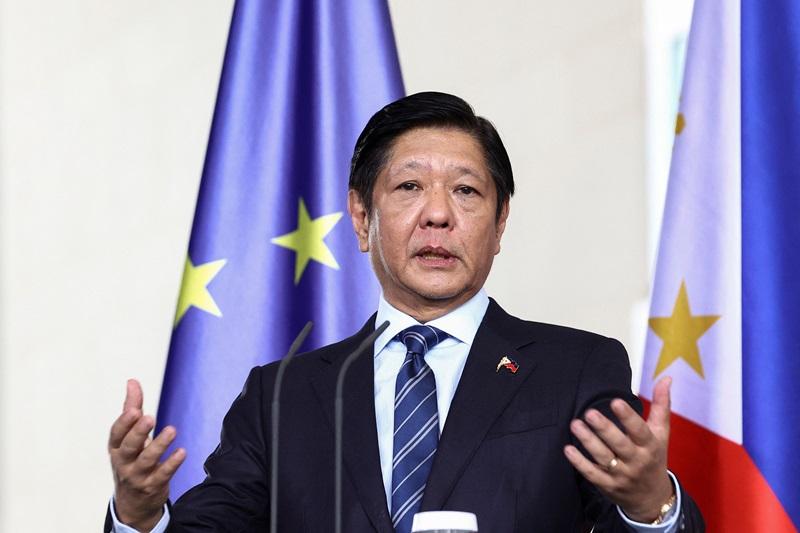By Chester Cabalza, Chelsea Nicole Pineda, and Ralph Romulus Frondoza
The weeklong Central European trips of President Ferdinand ‘Bongbong’ Marcos Jr. last March 11 to 16, 2024 in Germany and Czech Republic opened doors for more economic opportunities and security consultation with the West.
Notable achievements from his back-to-back visits to Berlin and Prague include USD 4 billion in investment pledges ranging from sound welfare talks for Filipino seamen and a boost to maritime cooperation amid China’s increasing hostility in the contested South China Sea.
The Filipino leader enhanced maritime protection during his working visit to Berlin when he signed the ‘Joint Declaration in Intent’ by strengthening maritime cooperation between the two leading democratic nations in Asia and Europe. German Chancellor Olaf Scholz emphasized the importance of the ASEAN Code of Conduct as an important mechanism to reduce tensions in the disputed waters. His statement comes two months after a German warship sailed through the South China Sea to exercise its freedom of navigation.
Meanwhile, the Czech Republic President Petr Pavel proposed marine vessels for the Philippines from October 2023, to beef up the Philippines’ naval arsenal and strengthen its coastal defense. This was enhanced during the three-day state visit of Marcos Jr. as he recognized Prague’s strength in manufacturing various types of war materials including fighter jets. The visiting world leader deemed that the Philippines needs more close partners and allies to support the middle power in Southeast Asia in realizing its growing foreign policy.
Increased diplomatic efforts in Central Europe juxtaposed Manila’s crucial geopolitical scrimmage with a giant neighbor in the South China Sea as the Philippines becomes a norm-setting prime mover of maritime rules-based international order in the region. Although Berlin and Prague both shared Manila’s position to increase trade and business in the Indo-Pacific, the two European countries adhere to a stable maritime security in one of the world’s busiest trading routes.
Economic pragmatism and diplomatic convergence resulted to Marcos Jr.’s much-celebrated diplomatic mission in Europe. He believed that like-minded European partners are carefully threading the line of promoting a legalist approach in resolving maritime disputes to avoid escalating conflict skewed with Beijing’s unilateral aggression despite its current economic recession.
But the two European states cannot crossover to Asia’s own security dilemma since the Russia-Ukraine War has become imminent in their continental security architecture causing decoupling in the European Union. This fait accompli wiggles to Germany’s own deterrence from Russia’s expansionism. As a result, German Chancellor Olaf Scholz plans to visit Russian President Vladimir Putin and Chinese President Xi Jinping in trying to secure a lasting peace in Eastern Europe and bid for stability in the South China Sea. Hence, Berlin may play an active role in brokering peace in Europe by meeting the Weimar triangle. It is hindsight for Germany’s commitment to preserving its commercial interests in maritime defense affairs and as a broker of peace negotiation.
In just two years of the Marcos administration, maritime diplomacy earmarked his core interest in promoting the 2016 UNCLOS decision as he questions Beijing’s 10-dash line and gray zone tactics. President Bongbong Marcos’s frequent visits to Australia, Europe and the United States certainly cemented the Philippines’ legitimacy as a trusted friend of the West. Unlike his predecessor’s renowned pivot to China, former President Rodrigo Duterte confined himself to foreign trips only in Asia and to Russia. In contrast, Marcos Jr.’s diplomatic strategy is construed as a reversion to traditional allies and strategic partners.
Manila under the younger Marcosian regime is showing Beijing that it can withstand China’s hostility, delivering a bolder message that a stronger Philippine economy is a natural deterrence against China’s aggression amid Chinese economic recession. His recent trips to Germany and Czech Republic are the newest footprint of Manila’s pivot to the West to bridge economic renaissance and nurture robust defense engagements. In fact, many of the modern military materiel possessed by the Armed Forces of the Philippines for its aerial, terrestrial, and naval arsenals came from Europe.
Lastly, the Berlin to Prague working and state visits marked for the first time that the Philippines’ chief architect of foreign policy and commander-in-chief of the armed forces has returned to the diplomatic circle with substantive political goal of championing maritime-rules based norms in the South China Sea by preserving peace and stability in one of the security flashpoints of the twenty-first century. More so, Marcos Jr. carefully plays his cards for expanding the county’s diplomatic clout in the West by advocating the strength of pragmatic diplomacy as Manila positions itself to become an economic hub as a key national interest in the dynamic yet tense region of the Indo-Pacific.
Dr. Chester Cabalza is the Founding President of the International Development and Security Cooperation (IDSC), a think tank based in Manila, Ms. Chelsea Nicole Pineda and Mr. Ralph Romulus Frondoza are Resident Fellows at IDSC.
(The views expressed in this article belong to the authors and do not necessarily reflect the views of World Geostrategic Insights).







